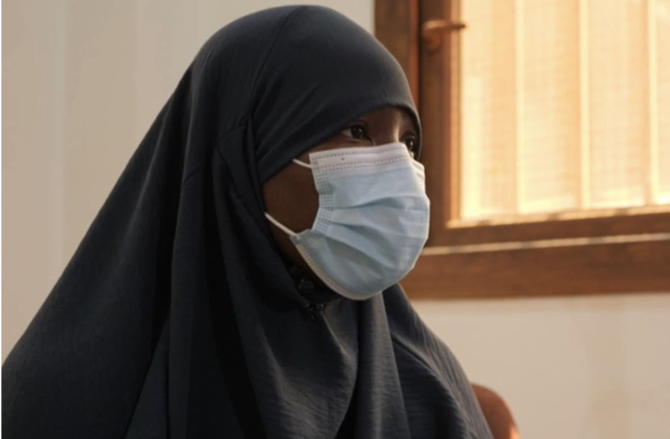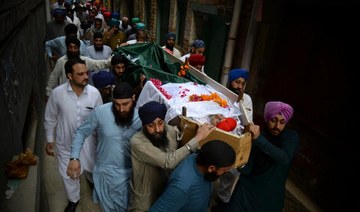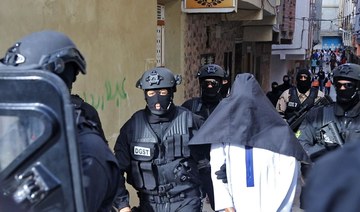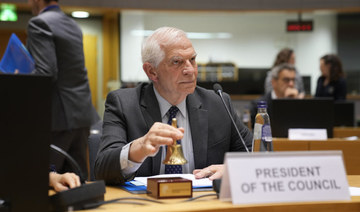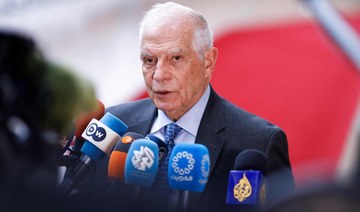LONDON: A 34-year-old British woman who traveled to Syria alongside her husband to join Daesh has urged the UK government to let her return with her three daughters.
Nicole Jack, from London, is being held in Kurdish-administered Al-Roj camp for Daesh families in Syria alongside her three daughters, aged 12, 9 and 7.
She told the BBC that despite traveling to Syria and living under Daesh’s so-called caliphate for three years, she does not represent a security threat to the British public.
The UK government has been reticent to allow those who joined Daesh — whether male or female — to return to Britain, and has stripped many of their citizenship in a bid to prevent their return.
That strategy has left thousands of people languishing in Syrian camps in dire humanitarian and security conditions.
Those women and children, Jack said, are “out of sight, out of mind,” and the UK government must not sweep them “under the carpet.”
The Home Office said its priority is to ensure the safety and security of the UK.
Jack traveled to Syria in 2015 to join Daesh alongside her husband, who died fighting for the group in 2016.
Few people will understand her decision to take her children to Syria’s warzone, she said, adding that her husband Ali threatened to divorce her if she did not. “It was about my family being together,” she said.
Jack later remarried, but her new husband was then killed in an airstrike alongside her only son, aged 10.
Daesh was known for its war crimes and crimes against humanity, including widely publicized executions, but Jack said: “I haven’t seen a beheading in my life.”
Her 12-year-old daughter told the BBC that she “misses her grannies and aunties,” and hopes to come back to the UK so she can “go to school and make friends.”
She said: “I like learning different things, like different languages. When you learn more things, your brain becomes better ... I want to be smart when I grow up.”
The girls’ grandmother said they should be allowed to return to Britain. “It is not fair and it is not right for these children to be languishing in this place," she said, adding that her daughter should also be allowed to return to the UK to “face the consequences” of her actions.
It is estimated that there are at least 16 British women and 35-60 British children detained in Syrian camps.
Among those is Shamima Begum, who traveled to Syria at the age of 15 and who has been vocal in her desire to return to the UK — a move being blocked by the government.
She too was stripped of her British citizenship, but has argued that she has nowhere else to go.
European countries have been struggling to formulate comprehensive plans to deal with the scores of Europeans still in Syrian camps, though some, such as Germany, have continued to repatriate their citizens.
According to Save the Children, those minors living in Syria’s detainment camps for Daesh families face the daily threat of violence and illness.
“These children are experiencing traumatic events that no child should have to go through — and this is after years of living in conflict zones,” Sonia Khush, director of the charity’s Syria response team, told the BBC. “It is incomprehensible that they are condemned to this life.”
The UK government said: “Our priority is to ensure the safety and security of the UK. It’s important that we do not make judgments about the national security risk someone poses based on their gender and age.”



